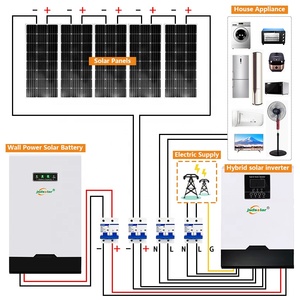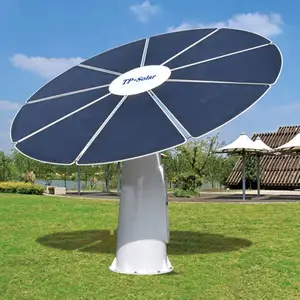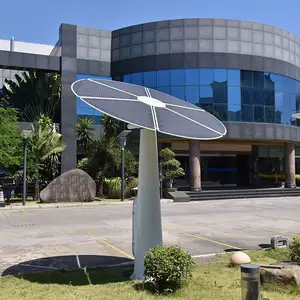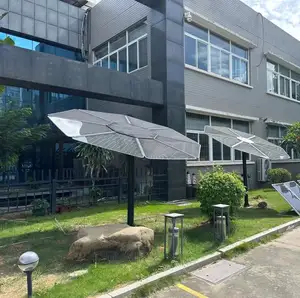Phổ biến trong ngành của bạn






Hệ Thống Năng Lượng Mặt Trời Off Grid 5KW 10KW 20KW 25KW 30KW Năng Lượng Mặt Trời Hệ Thống Điện Thương Mại Công Nghiệp Trang Chủ Để Bán
899,00 US$ - 2.218,00 US$
Đơn hàng tối thiểu: 1 Bộ







New Arrival 5KW 10KW 15KW 20KW 25KW 30KW Năng Lượng Mặt Trời Hệ Thống Bảng Điều Khiển Cho Nhà 220V Năng Lượng Mặt Trời Hệ Thống Lưu Trữ Bộ Dụng Cụ Trang Trại
730,00 US$ - 17.997,00 US$
Đơn hàng tối thiểu: 1 Bộ







Hệ thống năng lượng mặt trời hoàn chỉnh tắt bảng điều khiển năng lượng mặt trời Lai Lưới 5KW 10KW 15KW 20kW 30Kw hệ thống năng lượng mặt trời với biến tần và pin cho gia đình
5.560,00 US$ - 18.000,00 US$
Đơn hàng tối thiểu: 1 Bộ







Hệ Thống Năng Lượng Mặt Trời Với Pin Lithium Hệ Thống Năng Lượng Mặt Trời NGOÀI LƯỚI 15kw 10kw 5kw Hệ Thống Lưu Trữ Năng Lượng Mặt Trời
943,80 US$ - 1.060,40 US$
Đơn hàng tối thiểu: 1 Cái







Hệ Thống Lai Năng Lượng Mặt Trời Kit 5Kw 10Kw 12Kw 15Kw 18Kw 20Kw 25Kw 30Kw Off Grid Năng Lượng Mặt Trời Hệ Thống Năng Lượng Lưu Trữ Trang Chủ Thương Mại
730,00 US$ - 17.997,00 US$
Đơn hàng tối thiểu: 1 Bộ







Toàn Bộ 20KW 30KW 36KW Năng Lượng Mặt Trời Hệ Thống Giá Ở Mỹ Giá Rẻ 20 KW Năng Lượng Mặt Trời Nhà Máy Điện Off Grid Năng Lượng Mặt Trời Hệ Thống
0,80 US$ - 1,00 US$
Đơn hàng tối thiểu: 30000 Watt






Công Nghiệp 20kw 22kw 12kw 15kw 20 Kw 25kw 25kva 30kw 30kw Máy Phát Điện Năng Lượng Mặt Trời Hệ Thống Điện Năng Lượng 15kva Tại Ấn Độ 30kw
0,15 US$ - 0,28 US$
Đơn hàng tối thiểu: 100 Watt






Trung Quốc 1kw 2kw 3kw 4kw 5kw 10kw 15kw Công Nghiệp Năng Lượng Mặt Trời Panel Off Grid Giá Mua Năng Lượng Mặt Trời Nhà Điện Hệ Thống Năng Lượng
0,40 US$ - 0,70 US$
Đơn hàng tối thiểu: 5000 Watt






Nhà Sản Xuất 7kw 15kw Lai Off The Grid Nhà Inverter Nhà Hoàn Chỉnh Năng Lượng Mặt Trời Hệ Thống
0,40 US$ - 0,70 US$
Đơn hàng tối thiểu: 1000 Watt






Năng Lượng 30kw 25kw Ấn Độ Giá Quang Điện Off Grid Điện Tấm Dynamo Máy Phát Điện 20kw Exide Pin Cho Năng Lượng Mặt Trời Hệ Thống
252,90 US$ - 257,55 US$
Đơn hàng tối thiểu: 3 Gói






Bán Buôn Điện Home Panel Gắn Máy Phát Điện Tất Cả Ip65 Ngoài Trời Năng Lượng Khác Sản Phẩm Liên Quan Hệ Thống Năng Lượng Mặt Trời
0,28 US$ - 0,30 US$
Đơn hàng tối thiểu: 300 Watt


Thông Minh 10000 Watt Tắt Lưới Điện 20kw 30kw 50kw Với Một Mức Giá Tốt 10 W Năng Lượng Mặt Trời Hệ Thống Năng Lượng
430,00 US$ - 478,00 US$
Đơn hàng tối thiểu: 1 Đơn vị
Các tìm kiếm liên quan:
3kw năng lượng mặt trời hệ thống giá tại ấn độ5kw năng lượng mặt trời hệ thống giá trong pakistan1kw năng lượng mặt trời hệ thống giá tại ấn độ1kw năng lượng mặt trời hệ thống giá trong pakistanhệ thống năng lượng mặt trời 20kw cho nam phihệ thống năng lượng mặt trời 3kw trong punjabhệ mặt trời 30kwhhệ thống năng lượng mặt trời 20kw ở pakistanhệ thống năng lượng mặt trời 10kw trong keralagiá của 3kw năng lượng mặt trời hệ thống5kw hệ thống năng lượng mặt trời ấn độhệ thống năng lượng mặt trời 6kw trong keralahệ thống năng lượng mặt trời 5kw trong punjabhệ thống năng lượng mặt trời 2.2kwnăng lượng mặt trời hệ thống giá 350kw






Năng Lượng Mặt Trời Năng Lượng Battery Charger 10KW 15kw 20KW/Năng Lượng Mặt Trời Nhà Máy Điện Chi Phí 10KW 15KW/Năng Lượng Mặt Trời Ac Đơn Vị Với Giá Tại Ấn Độ 10kw 15KW
18.400,00 US$ - 18.600,00 US$
Đơn hàng tối thiểu: 1 Cái






Điện Giấc Mơ 3KW nhà năng lượng mặt trời hệ thống năng lượng 3000W tắt lưới năng lượng mặt trời hệ thống điện cho dân cư điện dự phòng lưu trữ pin

994,05 US$ - 73.125,90 US$
Đơn hàng tối thiểu: 500 Bộ






Bộ Biến Tần Tất Cả Trong Một Lưới Lưu Trữ Năng Lượng Mặt Trời 2023 8KW 10KW 20KW 15KW Giá Hệ Thống
0,20 US$ - 0,25 US$
Đơn hàng tối thiểu: 5000 Watt






Soeasy Tanfon 5 Kw Off Grid Xách Tay Năng Lượng Mặt Trời Hệ Thống Điện 200 Wát Giá Ấn Độ Ánh Sáng
0,75 US$ - 0,80 US$
Đơn hàng tối thiểu: 8000 Watt






Cửa Sổ Nhà Trên Hệ Thống Lưới Điện 1kw 1500W 2500W Tấm Năng Lượng Mặt Trời Giá Ấn Độ
0,12 US$ - 0,19 US$
Đơn hàng tối thiểu: 1000 Watt






Điện Giấc Mơ 5KW 10KW lai năng lượng mặt trời năng lượng hệ thống điện 3 giai đoạn 6KW kit hoàn chỉnh với pin lithium
994,05 US$ - 73.125,90 US$
Đơn hàng tối thiểu: 500 Bộ






15KW nhà mô-đun Kit giá 10KW 12KW 10KVA 20kW Bảng điều chỉnh thiết lập 100kw PV điện năng lượng mặt trời năng lượng trên lưới điện năng lượng mặt trời hệ thống máy phát điện
50,00 US$ - 200,00 US$
Đơn hàng tối thiểu: 2 Bộ






Trung quốc công nghiệp mini năng lượng mặt trời hệ thống bảng điều khiển 1kw đến 15KW off-lưới điện năng lượng cho nhà ngoài trời ứng dụng 1000 Wát tải điện
0,30 US$ - 0,50 US$
Đơn hàng tối thiểu: 5000 Watt






Năng lượng mặt trời hệ thống Bộ dụng cụ lai biến tần 5KW Kit với pin 15 KW là sắt thông minh trong Zambia saudi arabia Romania Morocco Ấn Độ
0,82 US$ - 1,19 US$
Đơn hàng tối thiểu: 3000 Watt












Namkoo trên lưới 10KW 15KW 20kW 25kw 30Kw năng lượng mặt trời hệ thống điện Bộ dụng cụ cho các thiết bị gia dụng mặt đất gắn
0,35 US$ - 0,45 US$
Đơn hàng tối thiểu: 30000 Watt






Yingli Jiasheng Tấm Pin Mặt Trời Kính Đôi Đơn Tinh Thể 500W-750W Bộ Dụng Cụ Cho Ngôi Nhà Có Bộ Sạc Biến Tần Pin Trong Alibaba
0,80 US$ - 1,00 US$
Đơn hàng tối thiểu: 1000 Watt






Trung Quốc 1kw 2kw 3kw 4kw 5kw 10kw 15kw Công Nghiệp Panel Năng Lượng Mặt Trời Off Grid Giá Mua Năng Lượng Mặt Trời Nhà Hệ Thống Năng Lượng
0,40 US$ - 0,70 US$
Đơn hàng tối thiểu: 1000 Watt






Entelechy 100 Wát 1kw 1kv 3kv 2kw 2.5kw 5kw Năng Lượng Mặt Trời Giá Hệ Thống Tại Ấn Độ, 500 Wát Năng Lượng Mặt Trời Hệ Thống Trong Nairobi Kenya Giá
0,75 US$ - 0,80 US$
Đơn hàng tối thiểu: 5000 Watt






Điện Giấc Mơ chi phí thấp 2kw 3KW 4Kw 6KW 10KW Kit Set năng lượng mặt trời PV Panels cài đặt hệ thống cho toàn bộ ngôi nhà

994,05 US$ - 73.125,90 US$
Đơn hàng tối thiểu: 500 Bộ






15KW nhà mô-đun Kit giá 10KW 12KW 10KVA 20kW Bảng điều chỉnh thiết lập 100kw PV điện năng lượng mặt trời năng lượng trên lưới điện năng lượng mặt trời hệ thống máy phát điện
155,00 US$ - 325,00 US$
Đơn hàng tối thiểu: 2 Bộ






LAI tắt lưới năng lượng mặt trời hệ thống điện 10KW 12KW 15KW 25kw 30Kw 33kw hoàn thành nhà năng lượng mặt trời lưu trữ năng lượng PV trên hệ thống lưới

994,05 US$ - 73.125,90 US$
Đơn hàng tối thiểu: 500 Bộ






Giá rẻ nhất 15KW nhà mô-đun Kit giá 10KW 12KW 10KVA 20kW Bảng điều chỉnh thiết lập 100kw PV điện năng lượng mặt trời năng lượng trên lưới điện năng lượng mặt trời hệ thống máy phát điện
158,00 US$ - 20.760,00 US$
Đơn hàng tối thiểu: 1 Bộ






Điện Giấc Mơ 5KW 10KW tắt lưới năng lượng mặt trời hệ thống điện Lithium lưu trữ năng lượng mặt trời Hệ thống pin năng lượng Tiện Ích Hệ thống lưu trữ năng lượng

994,05 US$ - 73.125,90 US$
Đơn hàng tối thiểu: 500 Bộ






2kw năng lượng mặt trời hệ thống 2000 Wát Off lưới hoàn chỉnh năng lượng mặt trời bảng điều chỉnh Kit Philippines 2kw năng lượng mặt trời hệ thống điện giá 2kw chi phí cho Nhà Giá
1.880,00 US$ - 22.176,00 US$
Đơn hàng tối thiểu: 2 Bộ
Các danh mục hàng đầu
Giới thiệu về 20kw năng lượng mặt trời hệ thống giá tại ấn độ
Duyệt qua bộ sưu tập khổng lồ của. 20kw năng lượng mặt trời hệ thống giá tại ấn độ tại Alibaba.com lý tưởng cho phụ nữ ở mọi lứa tuổi, loại cơ thể và sở thích phong cách. Những điều phi thường. 20kw năng lượng mặt trời hệ thống giá tại ấn độ không chỉ phong cách và có thiết kế về mặt thẩm mỹ mà còn về chất lượng vượt trội, được làm từ dòng vải cao cấp. Không phân biệt nghề nghiệp của bạn, những. 20kw năng lượng mặt trời hệ thống giá tại ấn độ có thể mang lại sự thoải mái suốt cả ngày khi bạn mặc chúng. Chúng mềm mại, thoải mái và quan trọng nhất là hợp vệ sinh để sử dụng mọi lúc.
Khi nói đến. 20kw năng lượng mặt trời hệ thống giá tại ấn độ, khách hàng không muốn thỏa hiệp với mức độ thoải mái của họ vì những thứ này luôn được mặc dưới một bộ quần áo và yêu cầu chăm sóc da của họ một cách dịu dàng. Sự lộng lẫy và tăng cường vệ sinh. 20kw năng lượng mặt trời hệ thống giá tại ấn độ có sẵn trên trang web được làm từ polyester, spandex, bông, lụa, polyamide và các vật liệu khác chất lượng cao, êm ái trên da của bạn và giúp da luôn thở thoải mái. Hơn nữa, những điều tuyệt vời. 20kw năng lượng mặt trời hệ thống giá tại ấn độ được nhuộm đơn giản và không chứa các màu có hại có thể cản trở làn da của bạn.
Bạn có thể chọn màu yêu thích của mình. 20kw năng lượng mặt trời hệ thống giá tại ấn độ từ bộ sưu tập khổng lồ của Alibaba.com với nhiều kiểu dáng, hình dạng, kích thước và màu sắc khác nhau phù hợp với phong cách của bạn. Những cái này. 20kw năng lượng mặt trời hệ thống giá tại ấn độ có kích thước phù hợp với tất cả các loại số liệu và sở thích. Những cái này. 20kw năng lượng mặt trời hệ thống giá tại ấn độ thoáng khí, chống vi khuẩn và chống tĩnh điện, cực kỳ hữu ích trong việc bảo vệ và duy trì vệ sinh của bạn.
Hãy truy cập vào Alibaba.com để có một loạt các điều khác biệt. 20kw năng lượng mặt trời hệ thống giá tại ấn độ có thể giúp bạn tiết kiệm tiền khi mua hàng. Các sản phẩm này có sẵn theo đơn đặt hàng OEM và có thể được đóng gói tùy chỉnh. Hưởng các giao dịch đối với các đơn đặt hàng số lượng lớn cho. nhà cung cấp và nhà bán buôn 20kw năng lượng mặt trời hệ thống giá tại ấn độ.
Khi nói đến. 20kw năng lượng mặt trời hệ thống giá tại ấn độ, khách hàng không muốn thỏa hiệp với mức độ thoải mái của họ vì những thứ này luôn được mặc dưới một bộ quần áo và yêu cầu chăm sóc da của họ một cách dịu dàng. Sự lộng lẫy và tăng cường vệ sinh. 20kw năng lượng mặt trời hệ thống giá tại ấn độ có sẵn trên trang web được làm từ polyester, spandex, bông, lụa, polyamide và các vật liệu khác chất lượng cao, êm ái trên da của bạn và giúp da luôn thở thoải mái. Hơn nữa, những điều tuyệt vời. 20kw năng lượng mặt trời hệ thống giá tại ấn độ được nhuộm đơn giản và không chứa các màu có hại có thể cản trở làn da của bạn.
Bạn có thể chọn màu yêu thích của mình. 20kw năng lượng mặt trời hệ thống giá tại ấn độ từ bộ sưu tập khổng lồ của Alibaba.com với nhiều kiểu dáng, hình dạng, kích thước và màu sắc khác nhau phù hợp với phong cách của bạn. Những cái này. 20kw năng lượng mặt trời hệ thống giá tại ấn độ có kích thước phù hợp với tất cả các loại số liệu và sở thích. Những cái này. 20kw năng lượng mặt trời hệ thống giá tại ấn độ thoáng khí, chống vi khuẩn và chống tĩnh điện, cực kỳ hữu ích trong việc bảo vệ và duy trì vệ sinh của bạn.
Hãy truy cập vào Alibaba.com để có một loạt các điều khác biệt. 20kw năng lượng mặt trời hệ thống giá tại ấn độ có thể giúp bạn tiết kiệm tiền khi mua hàng. Các sản phẩm này có sẵn theo đơn đặt hàng OEM và có thể được đóng gói tùy chỉnh. Hưởng các giao dịch đối với các đơn đặt hàng số lượng lớn cho. nhà cung cấp và nhà bán buôn 20kw năng lượng mặt trời hệ thống giá tại ấn độ.






































































